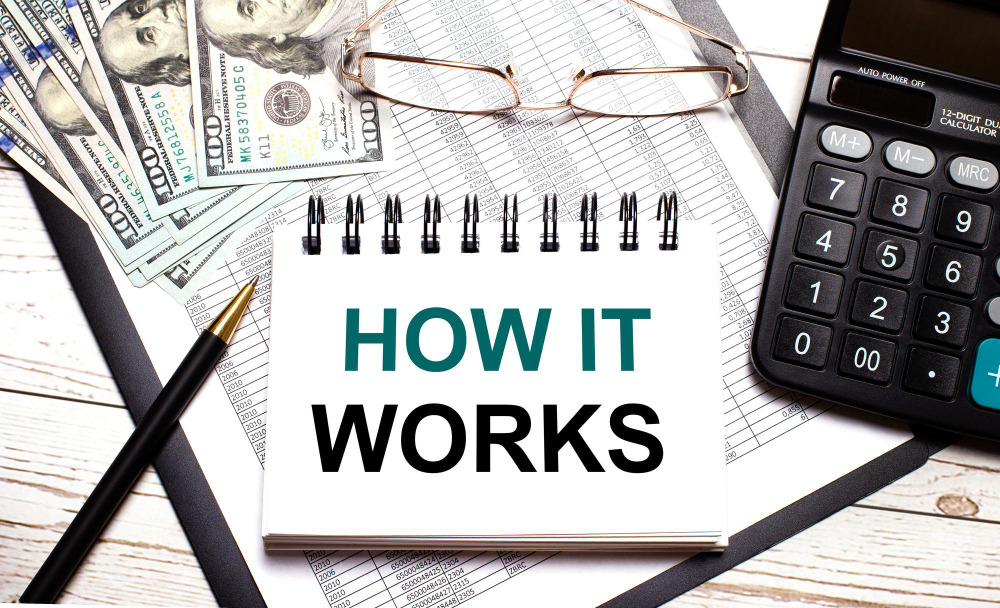So you want to be a business coach in 2022? Well, you’ve come to the right place! This guide will cover everything you need to know to become a successful business coach. We’ll discuss what skills and qualifications are necessary and what steps you need to take to get started. So whether you’re just starting your career journey or looking for a new challenge, read on for all the information you need to become a business coach!
The first step to becoming a business coach is to gain the appropriate skills and qualifications. There are a few different ways you can do this, but the most important thing is to ensure you have the knowledge and experience needed to help others achieve their goals. One way to gain these skills is to get a degree in business coaching or another related field. Alternatively, you can get certified through an organization such as the International Coach Federation.
Once you have the necessary skills and qualifications, the next step is to start marketing yourself as a business coach. This can be done by creating a website or blog, writing articles or e-books, or speaking at events. Getting your name out there and showing potential clients what you can do is important.
Finally, once you’ve built up a clientele, it’s important to continue developing your skills and knowledge. This can be done by attending workshops and webinars, reading books and articles, or taking courses. By continuously learning, you’ll be able to serve your clients better and help them achieve even more success.
So there you have it! You need to take these steps to become a business coach in 2022. Remember to gain the appropriate skills and qualifications, market yourself effectively, and keep learning throughout your career. If you do all these things, you’ll be well to becoming a successful business coach!

Why is Business Coaching Important?
Coaching is as essential as learning. You advance in your business (and life) only if you never stop learning. Every day presents a new opportunity to learn something new. And, best of all, with business coaching, you get expert advice from coaches who’ve trained hundreds of entrepreneurs like you. They’ve been where you are now and know what they’re talking about. What’s the nicest part? You’re held accountable for completing tasks on time by your business coach. Being your boss means you aren’t answerable to anybody else.
Business coaching is beneficial as it increases productivity and provides validation. It can be easy to become unproductive when working on a project alone, but with a business coach, you will have someone to help hold you accountable and keep you on track. A business coach also offers a valuable sounding board for entrepreneurs who might feel lonely or lack somebody to share their ideas with, somebody who has the experience and wisdom that comes from being successful in entrepreneurism.
Business Coaching Cost
The typical cost of a small company coach ranges from $ 150 to $ 250 per hour, although executive business coaches may charge more than $ 500 per hour. Most small business consultants charge between $ 150 and $ 250 per hour. On the other hand, executive business coaches may charge as much as $ 500 an hour. Note that most business coaches quote their prices in terms of hours worked. A few offer a monthly rate (such as myself). In addition, some charge their fees as a percentage of their client’s revenue.
A business coach’s pricing depends on the following factors:
- What is the coaching mode? How will service be delivered (video calls vs. emails)? Coaching via live video calls costs more than coaching via email.
- How much experience does the coach have, and what are their credentials?
- What are the number and frequency of sessions?
- What is the location of the coach?
- How much do other coaches charge for their services?
- In addition to coaching, will the program provide worksheets, templates, charts, exercises, and other resources?
- What is the coach’s ideal client’s annual income?
- Is the coaching service offered on a one-time or recurring basis?

How Much Should I Pay for a Business Coach?
The purpose behind why many business coaches avoid disclosing their rates, in the beginning is to prevent any objections from developing about the cost. By the time an individual considers committing, they have already seen themselves transform and are willing to pay for it.
They don’t want to have wasted all that time, and you’re as close to a guarantee as they can get.
But don’t pay a fortune for someone who can’t perform the skills they promise. You should pay a business coach what you believe to be an appropriate coaching fee for the work, and if one isn’t able to match you, look for another.
Many cheap business coaches have just as much impact as those that charge an arm and a leg. You should only pay what you think the transformation is worth. In some rare cases, if a coach can help you make more money, then they may be justified in asking for more money. However, this isn’t always the case.
Why do People Become Business Coaches?
Many business coaches have stories about how they got into coaching, and these stories usually hold the key to whether or not the coach will be successful. In other words, why you become a coach can make all the difference in your success rate.
The most impactful reasons for becoming a business coach are:
Fulfillment and Meaning:
Many coaches seem to have launched their coaching business to add greater purpose to their lives and feel more fulfilled by their work. There are few higher feelings than when you meet your objectives, but sharing that success and assisting others to do the same is a next-level sense of fulfillment.
Positively Impacting Their World/Community:
Many coaches want to make a difference in the world, whether it’s on a global or local level. When they find a more effective way of doing something, they want to share that knowledge with as many people as possible so that positive change can occur.
Why do I want to become a business coach?
If you’re wondering if graduate school is the next step in your career, this article is for you. We’ll explore why someone might get a degree after their undergraduate studies and examine the pros and cons of going to grad school.
Because of the lack of coach training and experience rules, many people believe anyone can become a business coach. It is not necessarily true that anyone can become a good business coach due to the absence of regulation around coaching qualifications and experience. For example, being a successful business coach takes someone with particular skills.
Background
To be regarded as a professional, you must have prior expertise, training, and credentials in your field, mastery over a certain aspect of your work, or abilities to provide to your customers.
Many successful coaches had prior careers in their fields. Many coaches also coach individuals and businesses and have corporate clients from previous job experience.
People Skills
Your coaching job description is all about effectively engaging with your clients. A good coach should have excellent communication skills and a personality that enables people to trust them. Emotional intelligence helps coaches connect and empathize with their customers, resulting in more successful coaching.
Behind-the-scenes role
Coach should understand that they will not be the show’s stars—their clients will. A coach isn’t the one making the decisions, providing the answers, or barking orders. A coach can nudge and shine a light on potential courses of action, but it is up to the customer to discover their solutions.

Choose Your Coaching Path—Find Your Niche.
Similarly to how a doctor chooses a medical specialty or lawyer in an area of the law, you must also pick what kind of coaching you want to do and who your clientele will be. There are several types of coaching: life coaches, small business coaches, executive coaches, etc.
This is because coaching can extend to various fields with diverse businesses and people. After considering your personal experiences and skills, you should know what type of coaching you would excel in and which clients would benefit the most from your services.
Here are a few questions you should ask yourself to figure out what your coaching niche may be:
What are my educational background and work experiences?
Consider what skills and knowledge you have. What would you describe as your strong suit? What kind of education did you complete as an undergraduate student? In your career, what kind of training have you had? Your answers will start to provide a picture of the coaching areas in which you can be useful to your future clients.
Some people have a wide range of abilities and real-world expertise in many professional areas, which allows them to effectively coach and advise various clients. Of course, this comes with more sophisticated coaching abilities and experience.
What coaching area/niches are you most drawn to?
Consider your passions and hobbies when selecting a coaching style or niche. Consider a certain area of coaching that excites you or if assisting people with a specific problem activates an interest in you. Take notice of those emotions while determining what coach you want to be and which types of clients you would like to assist.
A passion for the matters at hand is required for coaching. It will be difficult for your client to see the value of your services if you don’t have a burning desire to help them. If you enter a coaching industry without enthusiasm—only for the money—your interest will quickly evaporate, affecting your and your client’s success.
What competitive advantage can you bring to your branch of coaching?
To stand out as a coach, consider what differences or new angles you may provide to your field. Every coaching specialty has its branches and sub-branches. Some coaches combine their business expertise with their life experiences, such as being a parent and use this knowledge in their coaching niche. For example, small company coaching is usually included in parenting coaches.
Advance and Enhance your Skills
A business coach’s primary goal is to help their client reach their potential. However, it is difficult to do that if the coach has not reached their full potential or received adequate training. That is why coaches need to get proper training and work on self-improvement constantly in order to be the best they can be for their clients.

Here are some tips on how to become a top-rated coach:
Emulate top coach qualities
Is it possible to become a great coach without possessing all of the qualities that top coaches worldwide seem to have? Aiming at developing these qualities may help you transform yourself into a better-level coach.
- Simplicity —One of the best ways to market yourself as a business coach is to clearly and concisely explain your philosophy. Use simple language that potential clients will understand, and focus on how you can help them achieve their goals.
- Greater purpose —Most people want to make more money, but finding an additional motivator deeper than the monetary gain is a good idea.
- Accountability —You must accept that whatever occurs in your life is due to your actions rather than the actions of some outside agent.
- Courage — Take on challenges head-on and keep trying to accomplish what you previously thought was impossible.
- Serving others — Being a business coach means working towards your goals and dreams while helping others achieve theirs.
- Self-confidence — Have confidence that you can accomplish anything you set your mind to, even if it takes years.
Develop skills that will make you an effective and successful coach to help you advance your career.
Upskill Yourself
Whether you’re a seasoned business coach or just getting started as a life coach, you should always seek to learn new information about your field and enhance your coaching abilities.
Invest in your coaching future by attending coach training seminars, courses, or programs that relate to the type of coaching you want to do.
The more you know, the better. With continual advancements, it’s essential to stay on top of your industry by investing in training or courses.
Whether it’s a yearly real estate conference, intuitive mentoring training, or an internet course in social media marketing—it’s all training that will pay off handsomely for you and your clients. Training programs frequently provide certificates of completion as proof of their proficiency in certain skills.
Certifications
Though there’s no agreement in the business coaching community about what certifications a coach should have, getting certified from universities or coaching organizations is still a great way to improve your skills. The International Coaching Federation (ICF), which is recognized as one of the most reliable sources for coaching programs, offers three different business coaching programs:
- ACC — An associate-level Certified Coach certification, which requires 60 hours of training and 100 hours of experience, is required.
- PCC — As a professional certified coach, I have completed 125 hours of training and 500 hours of experience.
- MCC — I don’t know what level of experience you have as a trainer, but I’m not sure if it’s enough. The CPC requires 200 hours of training and 2,500 hours of experience.
You can get your Business Coaching Certificate (BCC) from the World Coach Institute, where students can study independently, online, or over the phone. Many colleges and universities in the US and around the world offer great business coaching programs that you can participate in part-time or full-time to earn your degree. Before enrolling, check if the business coaching program is certified by ICF.
Becoming a certified business coach is usually a good idea since it demonstrates to your clients (and yourself) that you have invested time and money to be the greatest coach for their requirements.
Develop Your Coaching System
Creating a company plan to present to prospective customers is critical—how you’ll take them from point A to point B. Coaching services are nonmaterial, therefore a good coach must develop a tangible technique for displaying how their services will benefit clients. Your responsibility is to develop a coaching program that breaks down all of the specifics and methods involved in assisting them in navigating every degree of difficulty toward success.
Your business coaching plan should include these specifications:
- How you will communicate—Establish how often you and your client will communicate in person, online, or through messaging. You might also want to use pre-recorded lessons, training webinars, or e-learning courses; they can come in handy when you don’t have much time and need to connect with several clients.
- Create tentative outlines on what will be covered in meetings—Identifying these questions can assist you in better comprehending your customer’s needs and objectives.
- Personalizing your plans—adapting your strategy to every client is key to success.
Conclusion:
Becoming a business coach is no easy task, but with the right skills and qualifications, it can be an extremely rewarding career. If you’re looking for a new challenge and want to help entrepreneurs achieve their goals, then becoming a business coach may be the perfect career. We hope this guide has given you all the information you need to start your journey to becoming a successful business coach. Are you ready to take the next step?























